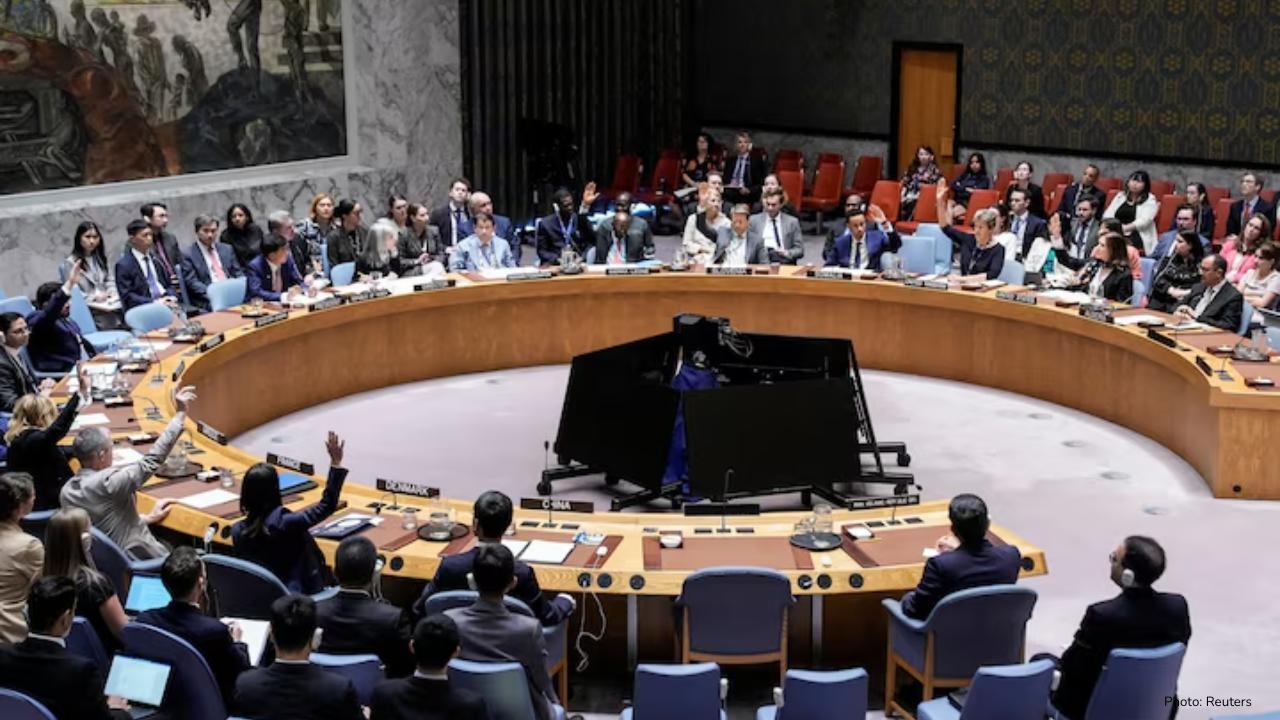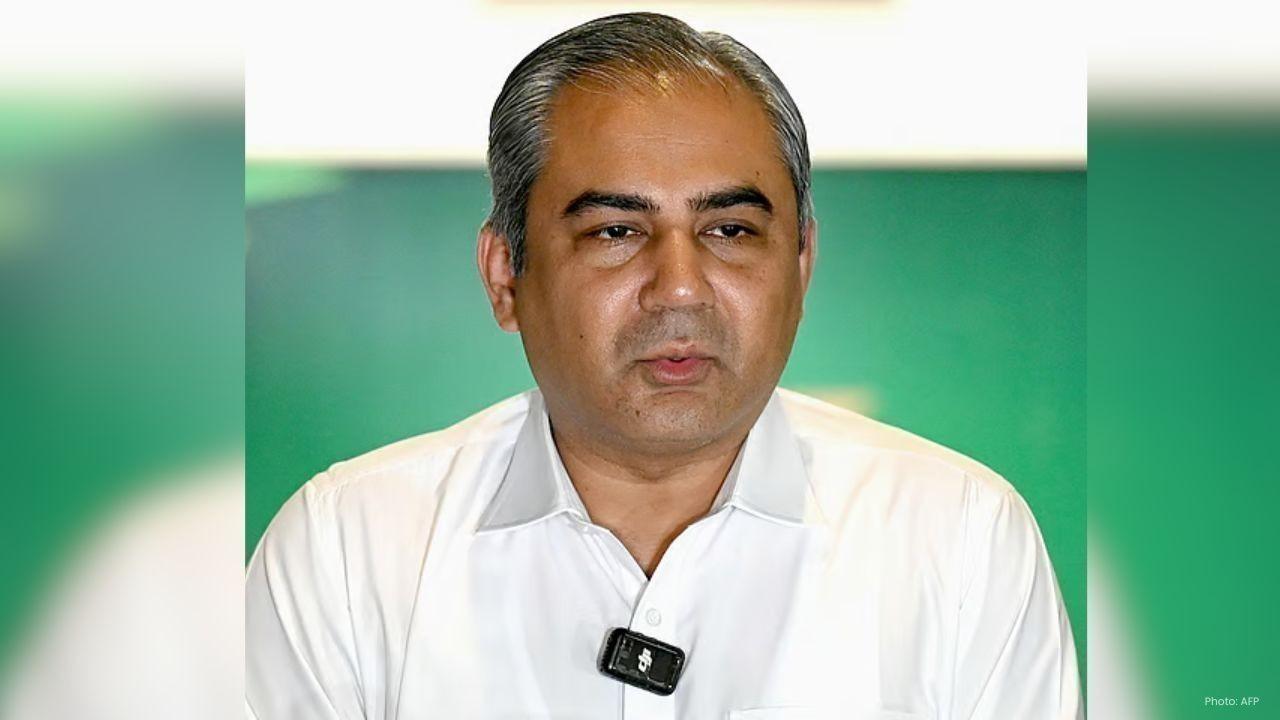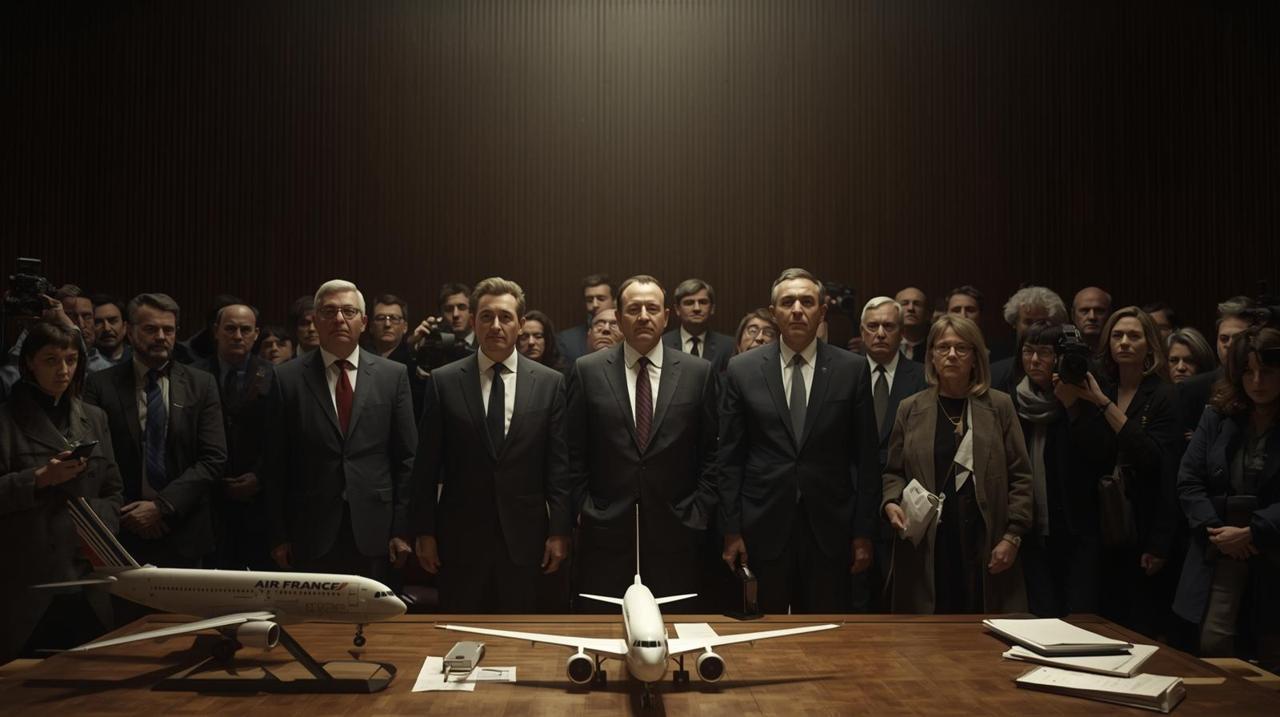
Post by : Monika
On September 26, 2025, Israeli Prime Minister Benjamin Netanyahu delivered an important speech at the United Nations General Assembly in New York. The main focus of his address was Iran’s nuclear program and the urgent need for the international community to act before Iran rebuilds its nuclear and military capabilities. Netanyahu’s speech came ahead of the reimposition of United Nations sanctions on Iran, following accusations by European countries that Tehran had violated the 2015 nuclear deal.
Netanyahu’s Strong Warning
Netanyahu started by warning that Iran’s nuclear ambitions are one of the most dangerous threats facing the Middle East and the world today. He said Iran is not only building nuclear weapons but also supporting militant groups such as Hamas and Hezbollah, which threaten Israel and other nations in the region.
He urged the United Nations and the global community to take immediate action to prevent Iran from completing its nuclear program. Netanyahu described the situation as urgent and dangerous, saying that delays in action could lead to catastrophic consequences.
He specifically called for measures to eliminate Iran’s stockpile of enriched uranium, dismantle its nuclear facilities, and prevent it from acquiring nuclear weapons. Netanyahu said that Israel cannot wait for diplomacy alone because Iran may achieve nuclear capability very soon.
Background of the 2015 Nuclear Deal
The 2015 nuclear agreement, also called the Joint Comprehensive Plan of Action (JCPOA), was signed by Iran and six world powers: the United States, United Kingdom, France, Russia, China, and Germany. Under this deal, Iran agreed to limit its nuclear activities in exchange for relief from international sanctions.
However, Netanyahu argued that Iran has not been fully complying with the agreement. He said that Iran has secretly continued uranium enrichment and other nuclear activities that violate the deal. According to him, this puts the Middle East and the world at great risk.
Israel has long been critical of the 2015 deal, claiming it does not stop Iran from eventually building nuclear weapons. Netanyahu’s UN speech emphasized that the world cannot rely solely on agreements that Iran may break.
Reimposition of UN Sanctions
Netanyahu’s speech came as the United Nations prepared to reimpose sanctions on Iran at 8 p.m. EDT on Saturday. These sanctions were triggered by a “snapback” mechanism that allows countries to restore UN sanctions if Iran violates the nuclear agreement.
The goal of the sanctions is to pressure Iran into compliance and prevent it from developing nuclear weapons. Netanyahu supported these measures and said the world must act decisively to ensure that Iran does not become a nuclear threat.
Challenges at the UN
Despite the push for sanctions, some countries tried to delay them. Russia and China proposed a resolution to postpone the sanctions for six months, arguing that diplomacy should have more time. However, this resolution did not get enough support in the UN Security Council. Only four countries voted in favor, while the majority opposed the delay.
This failure means the sanctions will take effect as scheduled. Netanyahu’s speech highlighted the tension between nations that want strict enforcement of the deal and those that prioritize extended diplomacy.
Iran’s Reaction
Iran strongly criticized the reimposition of sanctions. Iranian officials accused the West of undermining diplomatic efforts and increasing tension in the region. Iranian Foreign Minister Abbas Araqchi warned that Tehran may cancel its agreement with the International Atomic Energy Agency (IAEA), which allows inspections of Iran’s nuclear facilities, if sanctions are reactivated.
He emphasized that the recent inspection deal is conditional and would only continue if hostile actions, like the sanctions snapback, are avoided. Iran’s government sees the sanctions as a threat to its sovereignty and economic development.
Israel’s Security Concerns
Netanyahu emphasized that Israel faces an immediate and serious threat from Iran. He said Iran’s nuclear program, combined with its support for militant groups, endangers Israeli civilians. Netanyahu argued that Israel must be prepared to defend itself independently if necessary, even if international efforts fail.
He also mentioned that Israel has conducted successful intelligence operations to monitor and counter Iran’s nuclear and military activities. According to Netanyahu, these efforts have helped prevent attacks on Israel and other countries in the region.
Regional and Global Implications
Netanyahu’s speech highlighted that Iran’s nuclear ambitions are not only a problem for Israel. Other countries in the Middle East, including Gulf nations, face threats from Iran-backed groups. The region’s stability is at risk, and the international community must act together to prevent escalation.
Western countries are also involved in this situation. The United States, European Union members, and other allies are debating the best way to handle Iran. Some advocate for stricter enforcement of sanctions, while others support extending negotiations to find a diplomatic solution. Netanyahu’s position is that action must be immediate and decisive.
Diplomatic Efforts and Obstacles
Netanyahu acknowledged that diplomacy is important but argued it must be backed by strong enforcement measures. He warned that without action, Iran may quickly gain nuclear capabilities. He also emphasized the need for global unity against threats from Iran.
The UN Security Council is at the center of this debate. Some members want more dialogue with Iran, while others insist on sanctions and strict measures. The mixed positions show how difficult it is to reach a consensus, even though the risk from Iran is widely acknowledged.
Historical Context
Israel has historically opposed Iran’s nuclear program, arguing that it threatens the balance of power in the Middle East. Netanyahu has repeatedly called on the world to prevent Iran from obtaining nuclear weapons. His UN speech continues a long-standing effort to draw international attention to this threat.
He also pointed out that Iran has violated previous agreements and has used diplomatic loopholes to continue sensitive nuclear work. According to Netanyahu, these violations make it risky to trust Tehran without strict monitoring and enforcement.
Benjamin Netanyahu’s speech at the UN General Assembly on September 26, 2025, was a strong and clear message to the world. He urged immediate action against Iran’s nuclear program, supported the reimposition of UN sanctions, and warned of the dangers posed by Iran’s nuclear and military ambitions.
Netanyahu emphasized that Israel will continue to defend itself and that the international community must act decisively to prevent Iran from developing nuclear weapons. His speech drew attention to the challenges of balancing diplomacy with enforcement and highlighted the critical role of the United Nations in addressing global security threats.
The international community faces a complex situation: maintaining peace, ensuring compliance from Iran, protecting civilians, and supporting regional stability. Netanyahu’s address underscores Israel’s firm stance on security while calling for global action to prevent a nuclear crisis in the Middle East.
UN General Assembly 2025 Iran nuclear program










Sinner & Swiatek Shine at China Open: Semifinal Spots Secured
Jannik Sinner and Iga Swiatek advance to the semifinals at the China Open. Read about their victori

Michigan church attack kills 4, injures 8 in shocking violence
A gunman drove into a Michigan church, fired shots, set fire, killing 4 and injuring 8 before police

Moldova’s Pro-EU Party Secures Majority in Key Vote
Moldova’s pro-European PAS wins a strong majority in the parliamentary election, weakening pro-Russi

Gabriel’s late header gives Arsenal 2-1 win at Newcastle
Arsenal snatch dramatic 2-1 win at Newcastle as Gabriel heads the winner in stoppage time; Merino eq

Air France Flight 447 Trial Opens 16 Years After Tragic Crash
Sixteen years after the Air France Flight 447 crash, a trial opens against Air France and Airbus. Le

Europe close to Ryder Cup win after strong weekend play
Team Europe is on the verge of winning the Ryder Cup, showing great form in Italy and needing only a